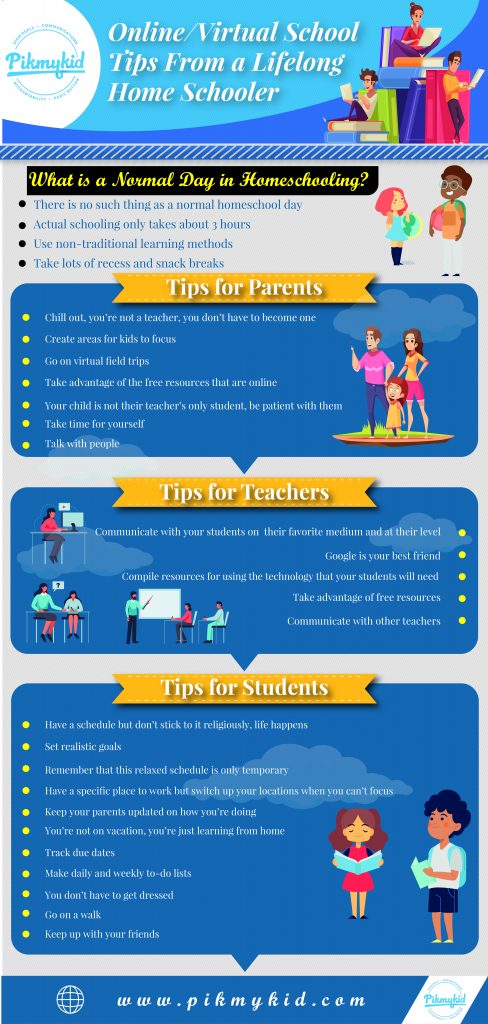Due to the coronavirus pandemic, many schools are closing and students are switching to an e-learning and online learning platform. But for most kids and parents, this is a huge transition.
As a homeschool alumnus, I know a thing or two about schooling from home. I also grew up with several younger siblings who were also homeschooled, so I know a few things about dealing with children doing school at home all day.
Remember, the most important thing to do right now is staying healthy and do what you can to slow and prevent the spread of coronavirus. However, life doesn’t stop because there’s a pandemic going on. Schoolwork still has to be completed. Lessons have to be learned. Work has to be finished. Food has to be prepared and consumed.
Because of this reality, PikMyKid is sharing this blog post with tips for a smooth transition to online learning from a former homeschooler.
What does a normal day doing e-learning look like?
As I have an extensive history with homeschooling and e-learning, I have learned one thing: there really isn’t a ‘normal’ homeschooling or e-learning day. I was homeschooled for 12 years and my mom is still homeschooling a few of my siblings. I also knew and still know many people who were homeschooled and are still being homeschooled and every day was different for everyone. But here’s a glimpse into a typical day in homeschooling:
When I was in elementary school, a typical day started with waking up and watching cartoons on PBS until my mom got up. After breakfast, we’d do a few subjects together. Growing up Christian, these subjects typically revolved around the bible.
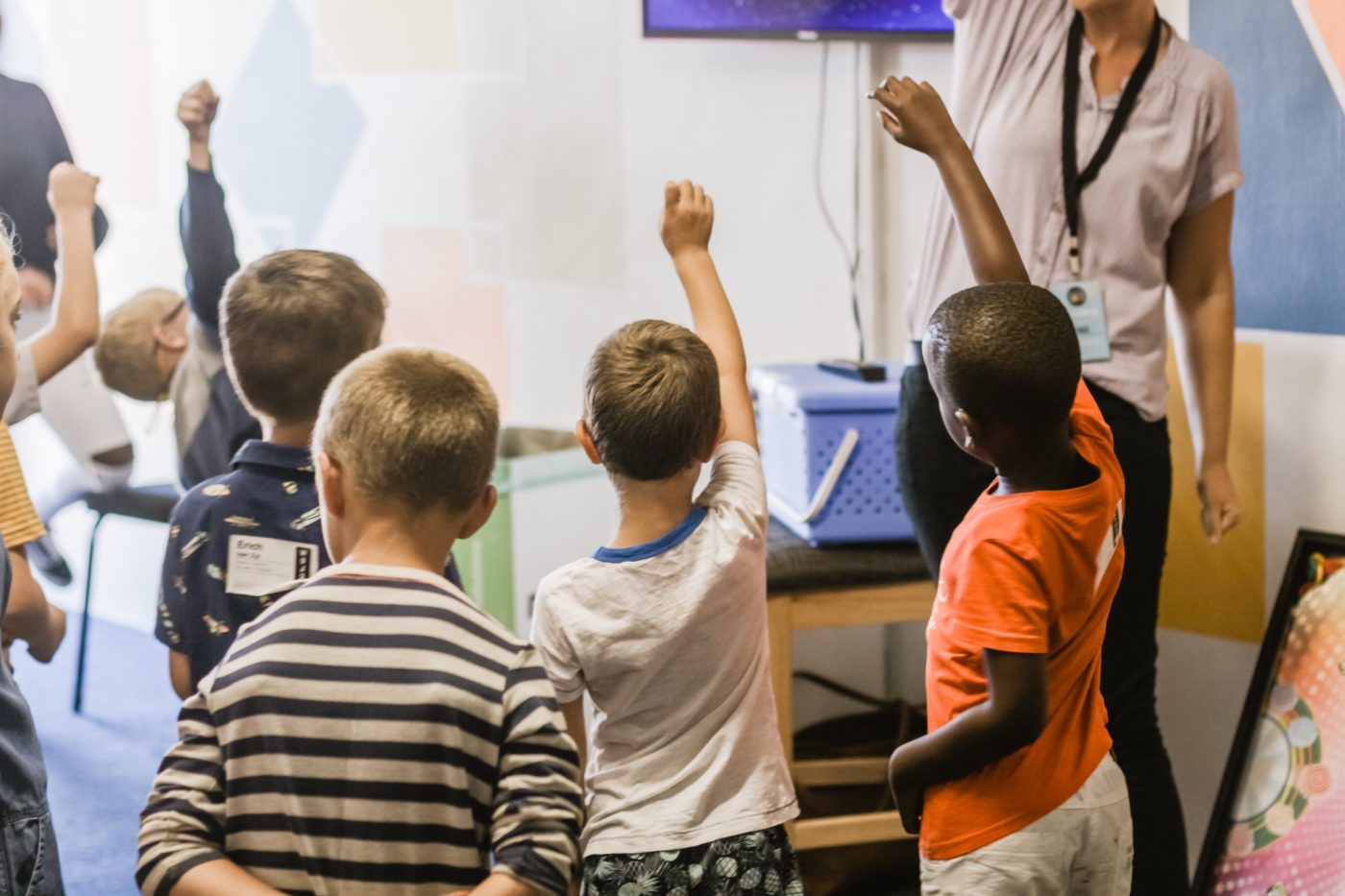
Then we’d move on to a few subjects that we could do on our own. Things like handwriting practice, math, language classes, stuff that was very grade-specific and couldn’t be combined with other students.
After lunch, my mom would group together some of us siblings whose grades were similar and we’d work on subjects together. Often we would work on science or history, my mom would read aloud or we would read the section ahead of time on our own. Then we’d get together and do experiments. Often we’d spend the afternoon reading on our own or my mom would read to us. We kept up with all the regular subjects like reading, writing, math, and science. But our schedule was rather flexible and I enjoyed that.
Something that helped everyone’s sanity that my mom initiated early on was ‘quiet time.’ Every day in the afternoon, right after lunch we’d have quiet time. The littlest kids would take naps and everyone else would read quietly for about an hour. Another thing that helped was going outside regularly to burn off energy. My parents had a large backyard with a swing set, sandbox, fort, and other toys and we loved to go out there and make-up games and play.
When I got into high school, my mom had found lots of courses that were either for online learning or created ahead of time. So that she didn’t have to “teach” them to me. Because I have a lot of siblings and it would have been impossible for her to teach all of us at our grade level every day. This is rather similar to what e-learning will be like for your kids. You won’t need to be on top of everything they’re doing. Keep up to date with them at least weekly to ensure that they’re moving forward in their classes.
The thing is, by the time my siblings and I were about 12 we could do most of our schoolwork on our own. Some days my mom was more hands-on than others, it depended on her schedule too. Now, my mom was decently on top of ensuring that we were all keeping up with our classes and making sure that we were making decent grades. But she didn’t need to keep up with everything we were doing. If you can’t work with your kids on their schoolwork every day during this pandemic, that’s okay.
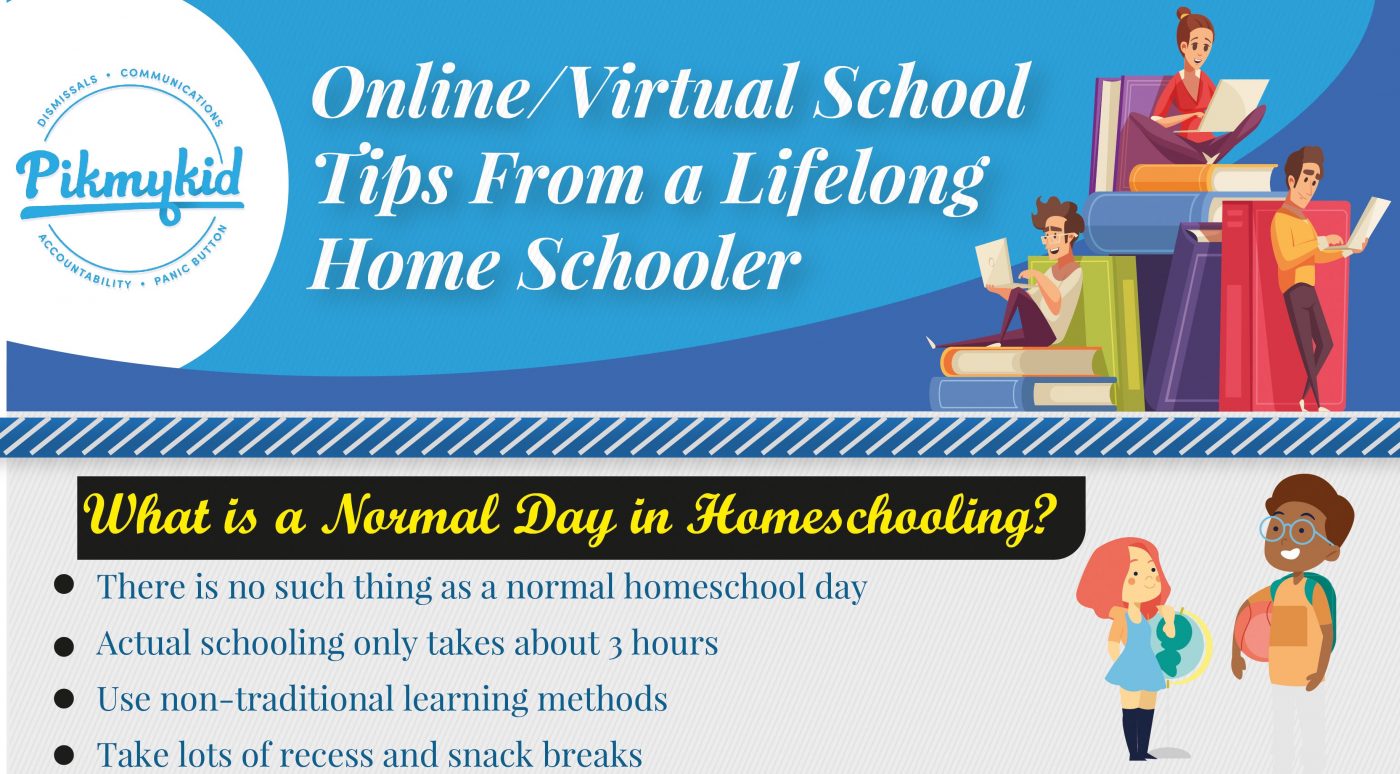
Tips for Parents
Homeschooling and E-Learning are Not the Same
Some people are saying that everyone is having to homeschool now, but you’re not actually going to be homeschooling so just take a deep breath. It’s going to be okay. You aren’t going to become your kid’s teacher overnight. They have a teacher (or teachers) and they will be facilitating their learning. You’re more of a supervisor at the moment.
Also, many of the tips in this article are supplementary. You do not have to ensure that your kids are constantly learning. As long as they’re keeping up with their studies, it’s not a big deal what they’re doing in their free time. You can encourage them to use learning software and read more, but don’t stress about it too much.
Chill out about online learning
You most likely are not a teacher and have most likely never taught before. You don’t have to replicate a classroom. This is an emergency and things are going to run differently because of it.
The state and federal governments are very aware of what’s going on and they’re working hard to figure out solutions to these problems that we’re having. Thankfully, we have the technology nowadays to keep classes running to a degree. But, this isn’t normal. Your child(ren)s teachers are not used to operating classes this way either. Expectations are low as we figure this out.
You are doing your best and it will all be okay in the end.
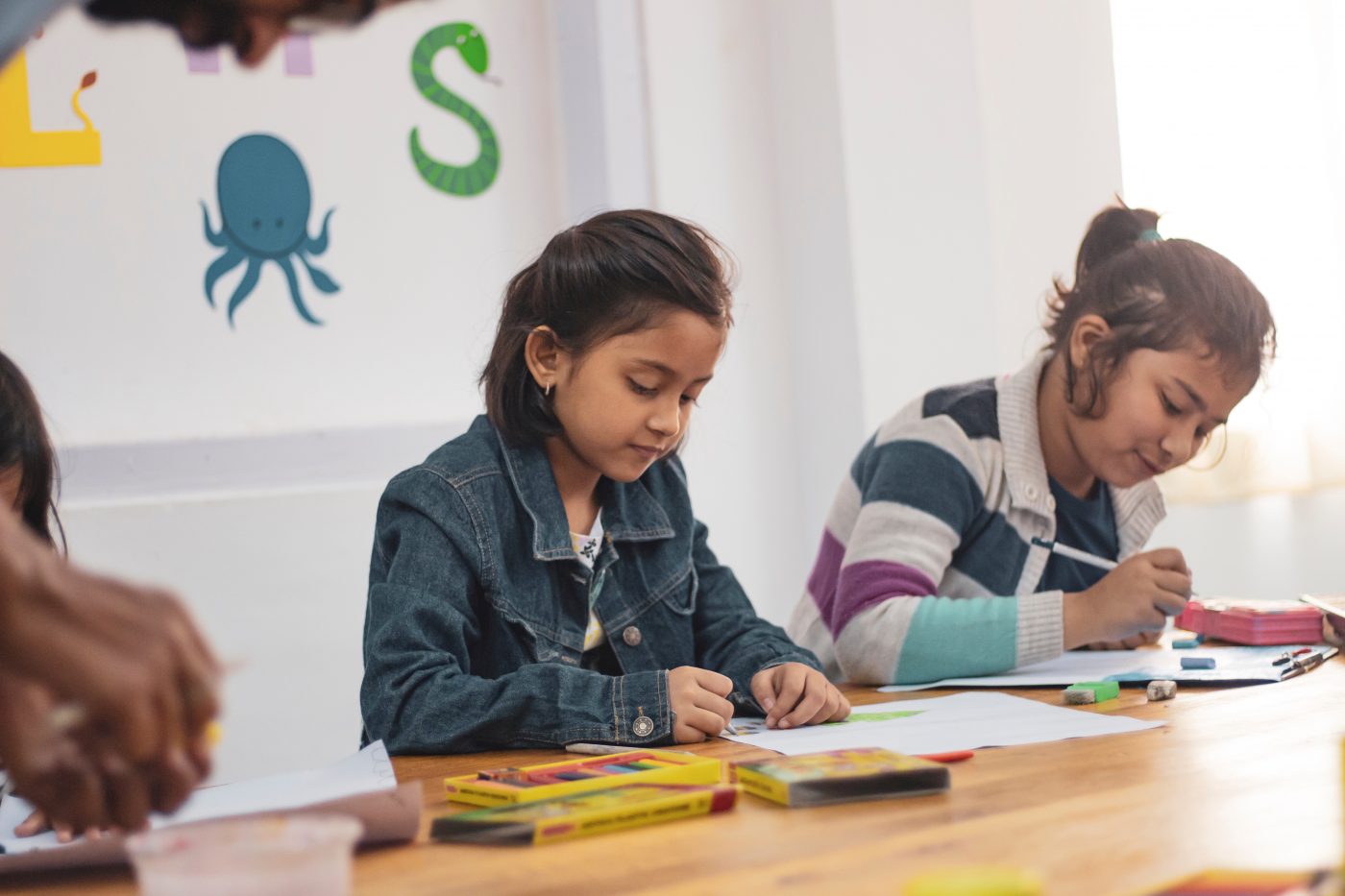
Your kids aren’t going to finish everything every day
I can’t even count the number of days growing up where I would get every subject done every day. Life happens. Kids get distracted. Let them take breaks when they need them. If you have a backyard, let them go out there often to run off some energy and to give you a break.
Understand how your kids work best
Are they at the age or do they have a personality where they’ll need a lot of input from you throughout the day?
If not, then let them be. Don’t ignore them, but don’t hover over them. Feel free to check on their work each evening or at the end of the work to make sure that they are doing what they need to be doing. But especially if they’re teenagers, they should be able to manage their time and get all of their work done on their own.
Provide areas where your kids can focus best
It might be tempting to have all your kids studying together at the dining room table, but this quite probably isn’t going to be helpful. Unless you have twins, your children are most likely going to all be in different grades. And they all have different tastes and ways of learning in an e-learning platform.
Let them work in a space that works for them. If that’s the dining room table then so be it. But if it’s in their bedroom or on the couch, let them work there.
Related Article: How to Create a Safe Space in Your “Classroom”
Don’t helicopter parent but be available when needed
If your kids are over the age of 10, they can probably do most if not all of their work on their own. Unless they don’t understand something.
Let them know that they can come to you if they have any questions.
Go on Virtual Field Trips
Due to social distancing from coronavirus, tons of museums, aquariums, and zoos are offering free virtual field trips to their facilities. This is a great supplement to e-learning.
The Akron Zoo is hosting Lunch and Learns on their Facebook Page
The San Diego Zoo has an entire page dedicated to educating kids about animals: San Diego Zoo Kids
You can find even more Virtual Field Trips on This Google Doc
Understand that your child’s teacher teaches hundreds of students and there is no way they can work hand in hand with every child.
This means that you’re going to have to step up and help your kids when they don’t understand something. Create a communication channel with your teachers. Share the feedback and they may be able to share some resources online that can make it easy for you
Don’t be afraid to tell your kids that you’re busy working
If you’re currently working from home because of the pandemic, be aware that you’re not going to be able to help your kids with their school as much as you’d probably like. You’re amazing for working to balance e-learning and a job during a pandemic.

Don’t be afraid of screen time
There are hundreds of thousands of free e-learning resources for online learning that your children can access. Your kids will probably finish their seatwork within 3 or 4 hours or even less if they’re in elementary school. And if you’re trying to work from home through all of this you’re going to end up at your wit’s end trying to occupy them.
First, you don’t have to entertain them constantly. Give kids space and they will find ways to entertain themselves. But also, let them watch educational tv and movies and play educational games on the computer.
Take time for yourself
You are a person too. You have to take care of yourself because you can’t pour from an empty cup.
If you’re balancing a job while having to supervise e-learning for your kids, you are a hero. Don’t forget that.
Log off the internet and do something just for you.
While staying informed is important, if you are constantly being reminded of the horrible things going on in the world, you’re going to be constantly stressed.
Set aside time every day to check the news and see what you need to know to be aware of, but other than that, just live. You don’t need to know exactly how COVID-19 is impacting everyone else in the world all the time.
Get ready to become tech-savvy if you aren’t already
Some schools are working with primarily paper-based learning because some students do not have access to technology or the internet. But, many schools are turning to technology during this complicated time
You as the parent need to be ready to learn the technology that your child will be using if you don’t understand it already.
Read aloud
Growing up, my parents read to us all the time and I still treasure the memories and stories from this time.
This also inspired my love of reading. To this day, I love curling up with a good book and my book collection takes up way too much of my apartment.
If you are too busy to read aloud, there are tons of FREE resources that will read books to your kids. Here are just a few platforms you can take advantage of:
Libby – a free app that connects with your local library and gives you free access to audiobooks and ebooks with your library card
Storyline Online – A collection of celebrities reading stories that are accompanied by artful illustrations
Vooks – A kid-safe, ad-free streaming library of read-aloud animated storybooks
Talk with people about the struggles and what you like about it
Also, just keep up to date with the people in your life. Social isolation doesn’t have to be isolating. We live in the 21st century and you can easily take advantage of the technology that you have at your fingertips.
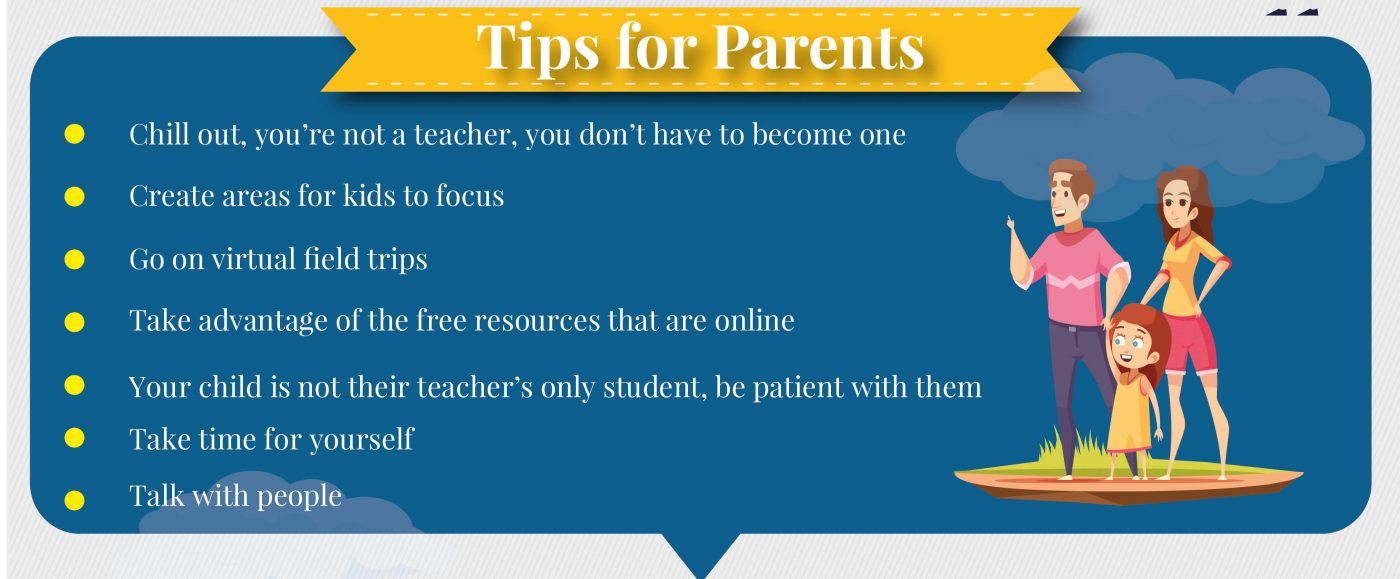
E-Learning Resources for parents
FREE E-Learning Software and Websites
- Wonderopolis – A place to ask questions and get them answered
- Khan Academy – Free education courses for anyone
- Distance Learning Resources from the Smithsonian
- PBS Kids – Educational Games and Videos
- Coursera – Free and Paid courses on literally anything
- BBC Learning – Support and articles for students of all ages as they navigate through their school years
- Breakout EDU – a collection of digital games that students can play at home. Students can click on any game and start playing!
- Ted-Ed – Instructional TED talks for students
- The Kids Should See this – videos about all kinds of cool things for kids of all ages
- Minecraft for education – a PDF guide on how to use Minecraft in an educational way
- Purple mash – comprehensive learning software for students of all ages
- Arcademic – Free multiplayer educational games
- Belouga – a global learning community
- Discovery K12 – online learning homeschool curriculum for students of all ages
- Free math and science websites and apps to support learning
- Fluency and Fitness – Math and Literacy software that incorporates movement to keep kids engaged and focused.
- Oxford owl – comprehensive learning website with resources for all subjects and grades
Maintaining your stress levels during this time
- Maintaining Mental Health PDF – Maryland Department of health
- Self-Care – To Write Love On Her Arms
- Preventing Coronavirus/Contagious Diseases in Schools – Kid.io
- Coping With Stress During Infectious Disease Outbreaks – PDF from the Substance Abuse and Mental Health Services Administration
- Headspace
- Feeling anxious right now? These therapy apps can help you manage your mental health
Tips for Students
Have a schedule
You know the list of things you need to accomplish this week. But figuring out how to actually finish them on time without constantly stressing yourself out is hard.
If you like the schedule you have at school then stick to it. I.e. if your schedule is like, Math, science, writing, on Mondays, and you like that, then keep it. There’s no need to fix what’s not broken.
However, when creating a schedule, make sure you schedule in any classes that have set times first.
Here are a couple of schedule makers you can take advantage of the Online Learning schedule from Khan Academy
What to do with kids out of schools closed by coronavirus? Use this free schedule-maker to plan the day – Mercury News
Be realistic about how long it takes you to complete each subject.
One of the perks of doing school work from home is that you can take as much or as little time as you need for each subject. You don’t have to spend an hour on history if you can complete your assignments and understand it all in 30 minutes. This also works the other way around. If you struggle a bit with math or another subject, take extra time to understand it. You have the freedom, use it.
Enjoy the more relaxed schedule but don’t forget that it is only temporary
You don’t want to get too used to online learning as in a few weeks or months, you will be back in class learning normally.
For example, don’t get used to sleeping till 11 am every day and then doing your school from 1 pm to 9 pm. E-learning is only temporary.
Follow least favorite subjects with favorite subjects
Perks of making your own schedule, you get to decide what order to finish your assignments in. If you love history but abhor writing, do writing first and then reward yourself with a subject you enjoy, like history.
Keep your parents updated on how you’re doing
Your parents are going through all these changes with you. At least once a week, sit down with your parents and give them a heads up on how your classes are going. If you need any help or anything like that. It’s going to be a team effort to get through the e-learning aspects of this pandemic. Try to do what you can to make it easier.
Also, try to not disrupt your parents too much if they’re working from home. Balancing e-learning, a pandemic, and a job is very hard.
Understand your limits
When you make your own school schedule, you can arrange it to be able to take breaks when you need to. If you get halfway through your math lesson and realize you can’t focus anymore, get up, walk around, get a snack, and then go back to work.
Have a specific place to work
Set up an actual ‘desk’ where you go every day to work on your assignments. Your ‘desk’ can be the couch, the dining room table, a porch, or anywhere you find comfortable.
However, I don’t recommend working from your bed as studies show that working in your bed makes your mind associate your bed with work and not sleep. Making it harder to fall asleep at night.
Switch up your working location if you can’t focus
When you have trouble focusing, get up and move to study in a different area.
Growing up, my typical place to work on my school was at my desk in my bedroom, but every so often, I’d need to switch it up. So I’d often move to our back porch or the living room.
Remember, you’re not on vacation, you’re just learning from home.
It’s very easy to think that since you’re doing your assignments from home that you’re not actually doing school and that you can do whatever you want. But this isn’t the case. You still have work to do. You just now get to do it from home.
You are in charge of getting your stuff done every day
Take personal accountability seriously. Create a way to track your time and see how long it takes you to do each subject on average and track when you take breaks and how long those breaks are. Then review at the end of the day and week and see how you can improve.
KEEP TRACK OF DUE DATES
Write them down in about 7 different places. At least 1 of those places should be electronic if possible and have a way to remind you of the due date several times before it happens.
I love using a wall calendar, bullet journal, and google calendar to track all of my due dates and such.

Make daily and weekly to-do lists
Take time at the start of your week to create a to-do list with everything you need to accomplish during the week. Then, break up the list by due dates. Then, work backward from the due dates to decide what days you need to focus on which assignments.
Then, each day review what you did the day before and what you need to do today. And make a list.
Review and update your processes as needed
If something is working, keep it. If it’s not working don’t be afraid to get rid of it and try something new.
Go on a walk
If you start getting antsy and are struggling to focus, get up and go on a walk outside.
Remember to keep practicing social distancing as you do. But being outside does wonders for your immune system and your mental state. Try to get outside at least once a day when the weather permits.
You don’t have to get dressed
It seems as though everything I’m reading online says that you need to get dressed and put your PJs away in order to have a productive day at home. Now, this can help but it isn’t the end all be all of working on stuff from home.
In fact, I often find that I’m more productive if I jump right in and don’t worry about getting dressed and such first.
However, try not to do school work from your bed. If you want to move there every so often to work on stuff it’s not the end of the world. But if you try to do all you work from your bed, your brain starts to associate your bed with work instead of sleep.
Ask for help when you need it
Go to your teacher, parents, and/or other students in your class. Just because you’re technically isolated at home doesn’t mean that you actually are isolated. There are so many people out in the world who can and will help you.
If no one is able to answer your questions or those that you’re asking can’t help you for some reason or another, Google is your best friend. There are dozens of websites and YouTube videos that can explain anything you’re struggling with.
Snack often
Snack breaks will help keep your energy levels high while breaking up your day.
Keep up to date with your friends
Take advantage of technology and video call your friends regularly. Stay up to date with them through texting and social media as well. It’s very easy to get caught up in the isolating effects of social isolation but with today’s technology, they can easily be avoided.
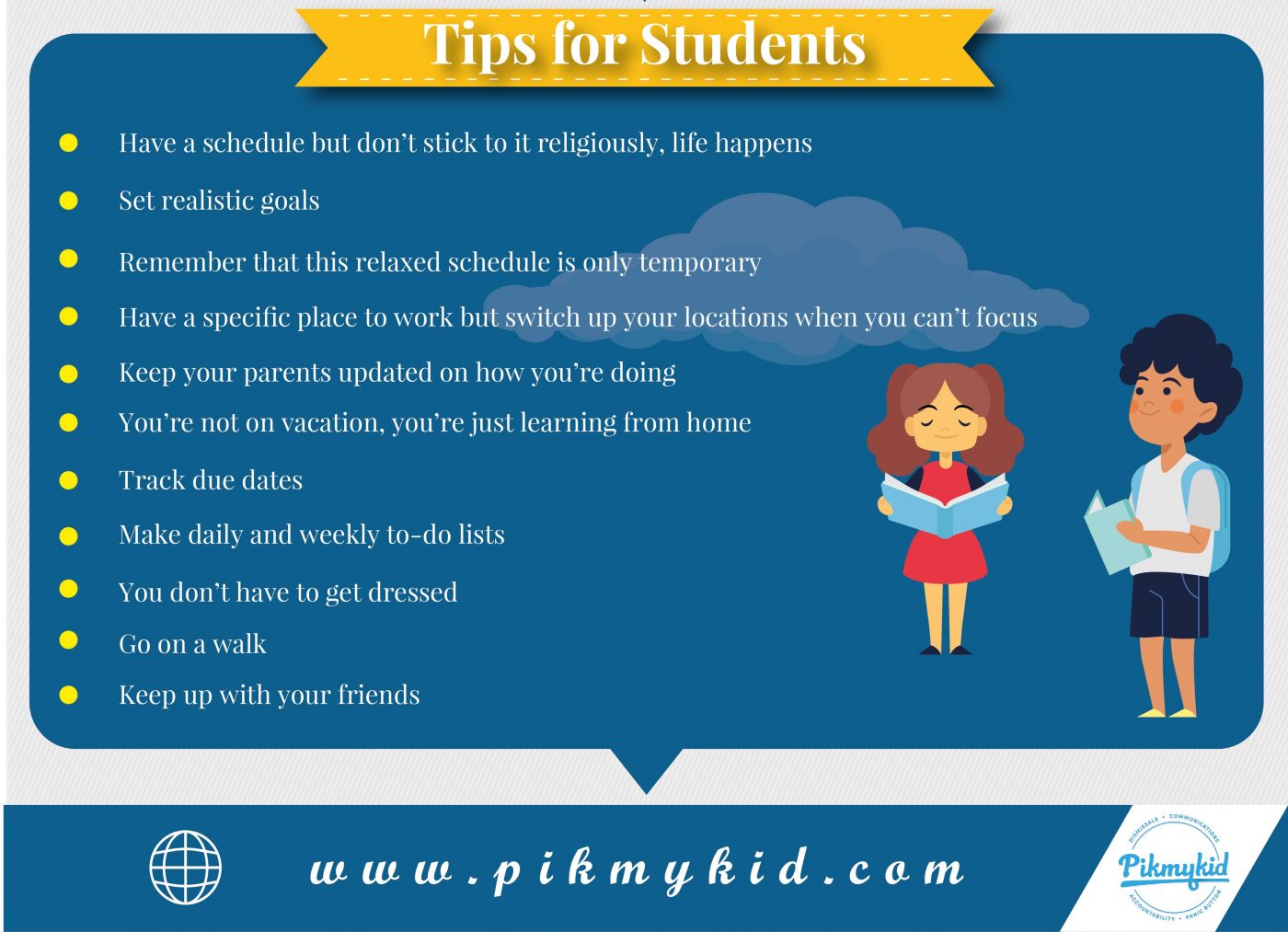
E-learning resources for students
Getting the most out of online e-learning:
- Getting the Most out of Your E-Learning Course – E-Learning Industry
- Twitter thread for students switching to online learning
- 8 Strategies For Getting The Most Out Of An Online Class – Northeastern
- 6 Simple Tips To Get Your Study Habits Back On Track – When Allie Writes
- Twitter thread on surviving online classes
- 8 Tips for Effective Online Learning – Coursera
- Common Mistakes To Avoid As A New Online Student
- How to Create the Perfect Study Environment for Online Learning – Purdue University

Free books
- Libby – a free app that connects with your local library and gives you free access to audiobooks and ebooks with your library card
- Project Gutenberg – a library of over 60,000 free eBooks. Choose among free epub and Kindle eBooks, download them or read them online. You will find the world’s great literature here, with a focus on older works for which U.S. copyright has expired. Thousands of volunteers digitized and diligently proofread the eBooks, for enjoyment and education.
Maintaining your stress levels during this time
- Maintaining Mental Health PDF – Maryland Department of health
- Self-Care – To Write Love On Her Arms
- Preventing Coronavirus/Contagious Diseases in Schools – Kid.io
- Coping With Stress During Infectious Disease Outbreaks – PDF from the Substance Abuse and Mental Health Services Administration
- Headspace
- Feeling anxious right now? These therapy apps can help you manage your mental health
Tips for Teachers
You know your students best
Some students will need you to hold their hand in everything and others will barely need you. Be accepting of how they’re learning during this transition
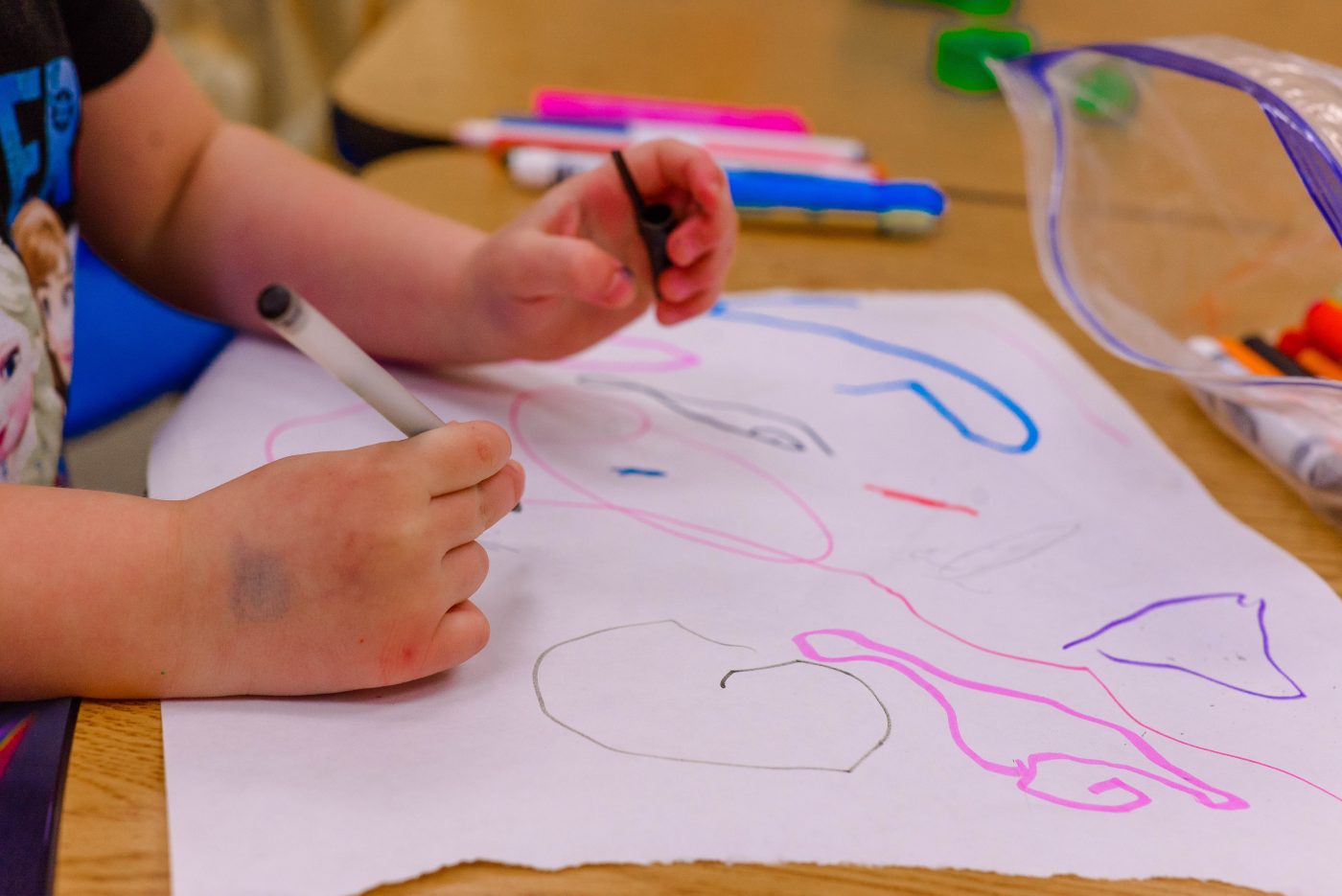
Communicate with your students using their favorite medium
As a member of Generation Z, I definitely prefer to communicate through texting and instant messaging or social media direct messaging.
For me, I love these platforms because it enables me to ask my questions in my time and gives the person I’m talking to the freedom they need to respond when they have time
Google is your e-learning best friend
Take the time to understand google docs, drive, hangouts, meet, etc… You probably already use a lot of these technologies in your classroom, but there are aspects of using them entirely virtually with your class that can be challenging.
Don’t be afraid to ask Google any questions you have about anything. You can learn literally anything by searching it online.
Create/Compile resources for the technology you will be using
create/locate resources that will teach your students how to use these resources. Because they will have questions and be able to share them in a matter of seconds.
Send these resources to all of your students and their parents. If your student’s parents understand the technology that is being used, they can help their kids even more. This will limit the amount of communication you have to facilitate for non-learning situations.
Take advantage of free e-learning resources
There are lots of homeschooling blogs out there and teacher blogs and stuff like that with tons of free resources that you can use. In fact, you can check out a whole host of free resources for teachers by clicking here.
Related Post: K12 Distance Learning Resources for the COVID-19 Pandemic + PDF
Here are just a few resource roundups that you can take advantage of:
- Scholastic Learn at Home – Day-by-day projects to keep kids reading, thinking, and growing.
- Homeschooling Through COVID-19 – CRHE
- Free resources – a love of teaching
- 8 Free Online Resources to Recommend to Families – Easy EdTech Podcast 054
- Online Learning in the Wake of COVID-19 Tips and Resources for PreK-12 with Equity in Mind – New America
- Amazing Education Resources – an extensive list of education companies offering free subscriptions due to schools closing
- Here’s The Entire List of Education Companies Offering Free Subscriptions Due to School Closings
- Learn in color – Free Resources for all age groups and subjects
Keep up with People
Video call friends. Text your mom. Keep up to date with the people in your life who matter most. It’s easy to get lost in the isolation of working from home and not being able to see your students. But you can get through this.
Encourage your students to video call you when they have problems. That way, you can see exactly what they’re working on and you can see their faces again.
Communicate with other teachers
Whether that’s the other teachers at your school or around the country or the world. Keeping up with others in your field will help you know what’s working for others and what isn’t. Ask them questions when you’re unsure how to do something.
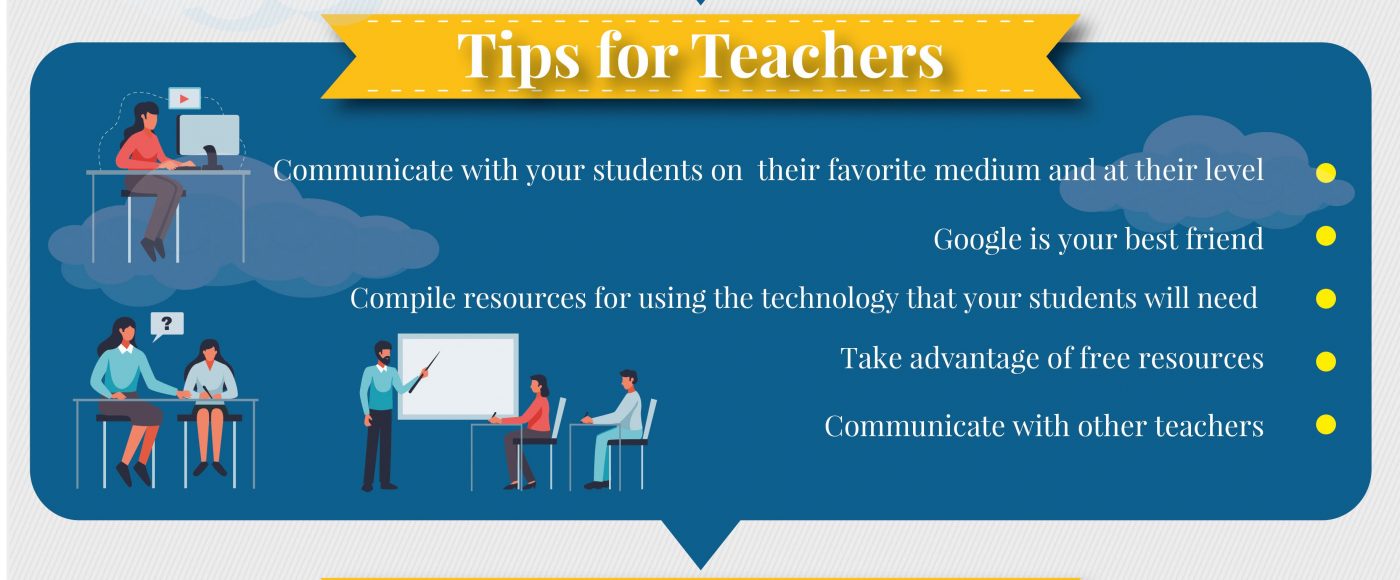
E-Learning Resources for teachers
Online Learning Classroom Resources to Make E-Learning Easier
- How to Create an Online Classroom – Stanford Online High School
- Online Teaching in the Time of the Coronavirus – Ed Tech Emma
- Online Learning Transition tips – google doc
- Free Online Learning Resources for Teaching Your Students Virtually – We are Teachers
- CSTA-Compiled Resources to Support Teaching During COVID-19
- Resources for Online Meetings, Classes, and Events – Google Doc
- 9 Tips for a Good Distance Learning Lesson Using Zoom – Athlos
- PikMyKid for Teachers – PikMyKid
Maintaining your stress levels during this time
- Maintaining Mental Health PDF – Maryland Department of health
- Self-Care – To Write Love On Her Arms
- Preventing Coronavirus/Contagious Diseases in Schools – Kid.io
- Coping With Stress During Infectious Disease Outbreaks – PDF from the Substance Abuse and Mental Health Services Administration
- Headspace
- Feeling anxious right now? These therapy apps can help you manage your mental health
